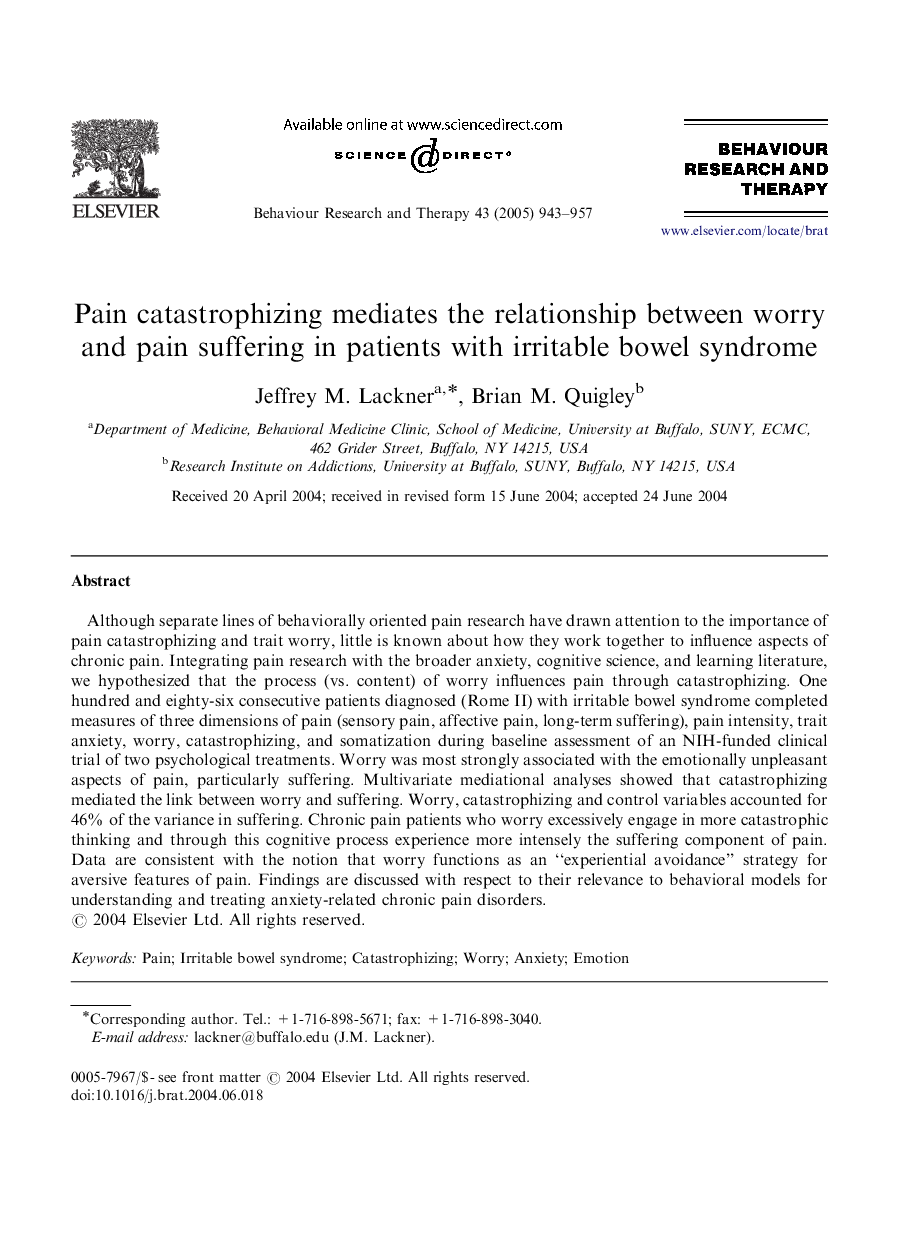| Article ID | Journal | Published Year | Pages | File Type |
|---|---|---|---|---|
| 10444953 | Behaviour Research and Therapy | 2005 | 15 Pages |
Abstract
Although separate lines of behaviorally oriented pain research have drawn attention to the importance of pain catastrophizing and trait worry, little is known about how they work together to influence aspects of chronic pain. Integrating pain research with the broader anxiety, cognitive science, and learning literature, we hypothesized that the process (vs. content) of worry influences pain through catastrophizing. One hundred and eighty-six consecutive patients diagnosed (Rome II) with irritable bowel syndrome completed measures of three dimensions of pain (sensory pain, affective pain, long-term suffering), pain intensity, trait anxiety, worry, catastrophizing, and somatization during baseline assessment of an NIH-funded clinical trial of two psychological treatments. Worry was most strongly associated with the emotionally unpleasant aspects of pain, particularly suffering. Multivariate mediational analyses showed that catastrophizing mediated the link between worry and suffering. Worry, catastrophizing and control variables accounted for 46% of the variance in suffering. Chronic pain patients who worry excessively engage in more catastrophic thinking and through this cognitive process experience more intensely the suffering component of pain. Data are consistent with the notion that worry functions as an “experiential avoidance” strategy for aversive features of pain. Findings are discussed with respect to their relevance to behavioral models for understanding and treating anxiety-related chronic pain disorders.
Related Topics
Health Sciences
Medicine and Dentistry
Psychiatry and Mental Health
Authors
Jeffrey M. Lackner, Brian M. Quigley,
